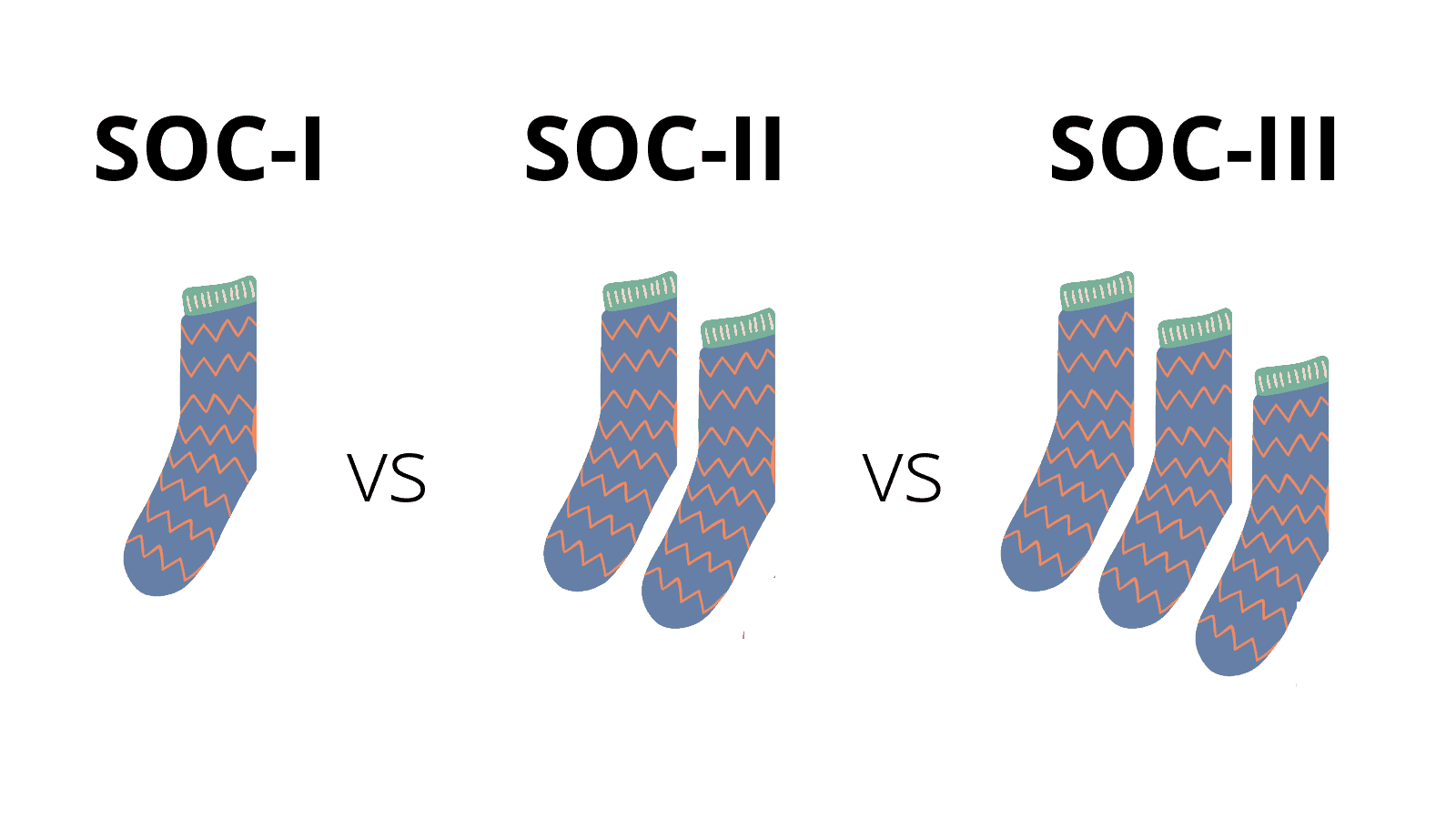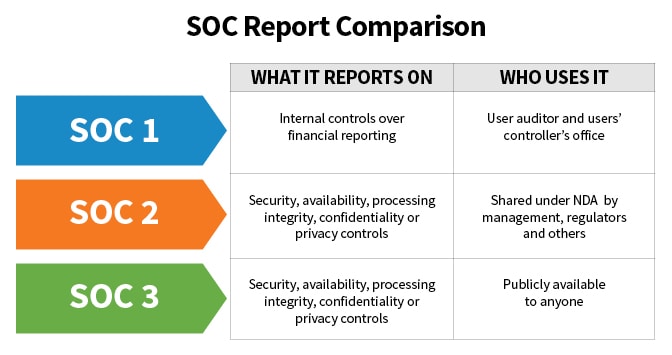Compliance is one of the building blocks for an organization. Some would even classify it as one of the most critical aspects of business today. Compliance reduces legal problems, improves operational efficiency, enhances public relationships, fosters customers’ trust, and ensures better employee engagement. SOC compliance is critical for any organization that wants to grow, and SOC compliance is one such essential compliance. But does your company need it? And what are SOC1, SOC2, and SOC3 compliances – and which one do you need? Here’s a look at SOC compliance, the different types of SOC compliances, and who needs them.
What is SOC compliance?
SOC or System and Organization Controls reports are a set of three reports (SOC1, SOC2, and SOC3). They are established as the latest framework for examining the controls within a service organization.
The reports are set and governed by the AICPA. They are relevant to any service organization offering services like data hosting, software as a service (SaaS), or cloud computing.

An SOC report is a certification that every service organization receives once it gets a third-party audit done. SOC compliance demonstrates that:
- A third party has fairly audited the service organization.
- The service company has critical controls in place.
If your clients are regulated organizations, they will require you to provide them with SOC reports to let them know:
- A third party has audited your company.
- Your company has all the necessary system and entity level (organization) controls in place, making up its internal control environment.
While SOC certification is mandatory, there is a difference between SOC 1, 2 3 certifications. The kind of compliance required by a service company depends on various factors. But first, here’s a look at what each type of SOC certification means.
What is a SOC 1 report?
SOC 1 reports report on internal controls on financial reporting and are necessary when your organization impacts your customer’s financial statements. For example, your organization will require a SOC 1 report for your clients if it performs services like payroll processing, credit card payment processing, claims processing, etc. For example, medical claims processors must process financial statements and be SOC 1 compliant.
What is a SOC 2 report?
A SOC 2 report or SOC 2 compliance is crucial for cloud computing and technology companies. A SOC 2 report examines the service organization’s controls over:
- Security
- Availability
- Processing integrity
- Confidentiality
- Privacy
An SOC 2 report details the level of security, reliability, confidentiality, and privacy provided by a particular service organization.
A SOC 2 example is a cloud storage company that processes large amounts of data. Clients require assurance that all their data is handled securely and remains confidential and private.
There are two parts to SOC 2 compliance. The first part of SOC 2 compliance ensures controls are in place, while the second part confirms those controls are indeed working.
Type I: Controls are in place.
Type II: Controls are in place and working.
While you might have all the required controls in place, it does not mean that those controls are working. So, your clients will delve deeper into your compliance reports to check if your controls are really working.
When your clients want to know how safe their data is with your organization, they will want to read your SOC 2 Type II measurement.

What is a SOC 3 report?
In short, an SOC 3 report is a report that provides a high-level summary of your company’s entire SOC audit. It is designed so that it can be posted on your organization’s website as a marketing tool to let your clients know that you are SOC compliant. It is not a highly detailed report like SOC 2.
From a client’s perspective, an SOC 3 report gives them the peace of mind that your organization is SOC compliant.
A SOC 3 example is a public enterprise that is SOC 2 verified. They may produce a SOC 3 report to assure the public that it complies with the general data protection principles to ensure its brand is protected.
Potential clients will want to ensure you have a SOC 3 report. Once they see your service organization as a possible prospect, they will want to see your SOC 2 or SOC 1 reports.
Conclusion
SOC compliance is critical for any service organization. If you are a service provider, your company must be SOC compliant. The type of SOC compliance you need will depend on the services you provide.
SOC 1 deals with financial reporting and is required by organizations whose services will impact their customer’s financial statements. SOC 2 deals with compliance and operations, especially data security and cloud computing. It reports on the service organization’s internal controls. Finally, SOC 3 reports are a brief but high-level summary of SOC 2.